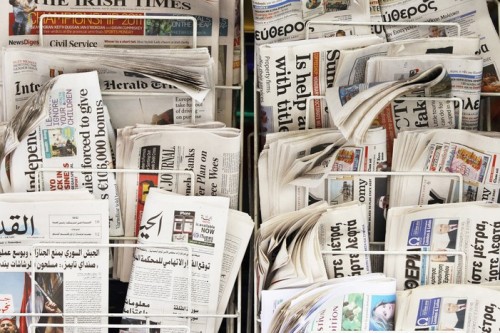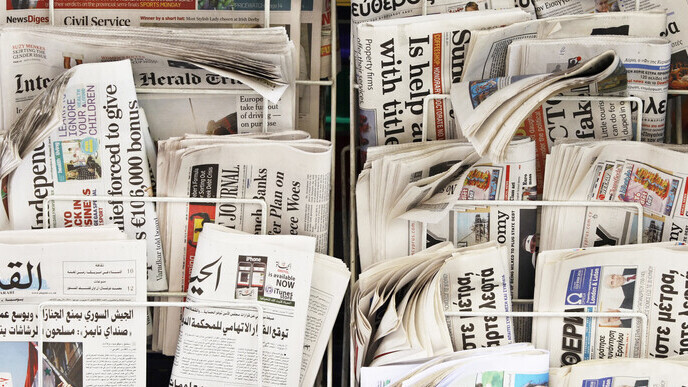
posted 8th November 2021

When I was at school, there were three TV channels and not many more radio stations. Television started in the afternoon and stopped at 11 pm (with the national anthem). News came from bulletins scheduled at fixed times in the day, and from hard copy newspapers printed overnight and delivered in the morning. If something really exceptional happened, programmes might be interrupted for a ‘News Flash’. This happened about once every five years.
It’s different now. It’s a bit like food. In the early twentieth century, many people in Britain were made ill by not having enough food to eat. In the early twenty-first century, almost nobody in Britain does not have enough food to eat, but many people are made ill by only having bad food to eat. Rickets doesn’t kill people any more; obesity related illnesses such as heart disease and diabetes do. So with information. There’s no shortage of it, but it isn’t all good, and if you consume the wrong sort it can damage the health of your understanding. So you need to be discriminating.
Social media is a wonderful invention for certain things. It is a superb tool for connecting people with like minded interests, for organising people, and for disseminating information. I’m not convinced that it is very useful for informing yourself about the world. There is a natural tendency for it to form into bubbles of like minded people who simply reinforce one another’s prejudices without being challenged. The brevity of the medium also means that it is very hard to develop arguments with the length and complexity necessary to understand them properly. The anonymity of the medium means that anyone can post anything, without having to take responsibility for its accuracy or fairness. Moreover, there is substantial evidence (for example, from the Brexit referendum and the US presidential election in 2016, and now with anti-vaccine propaganda) that social media can be manipulated in a very sophisticated way to distort the outcomes of popular votes or to spread malicious and false conspiracy theories.
The advantage of what is sometimes dismissively referred to as ‘the mainstream media’ is that it is more accountable, and more controlled. Anything printed in a newspaper or broadcast on a mainstream TV or radio channel will have been fact checked and edited. That does not mean, however, that they will be free of bias; part of being a good debater is being able to detect and take into account that bias.
TV and Radio
The BBC has consistently been criticised from both left and right for being biased, which I think is a very good sign. It is not without its flaws, but I still believe it is up there with the NHS as one of the institutions of which British people should be proud. It is mandated by law (unlike other media outlets) to be free of bias. The accuracy and impartiality of its journalism is generally of a very high standard. The Today programme on BBC Radio 4 and Newsnight on BBC 2 can both be highly recommended. Its website offers a lot of longer articles; its ‘explainers’ are great sources for researching debates. Sky News is very good for deeper analysis, as is Channel 4 News.
Newspapers and magazines
The Guardian, The Independent (online only), The Times and The Daily Telegraph are the ‘serious’ newspapers. They will give you facts about what is happening in the world, though each with their own bias in the way they are presented. The Guardian and The Independent lean to the left, and the Times and the Telegraph to the right. In many ways the most useful part of these papers is the opinion and editorial section (known as op-ed for short) which will feature columns expressing opinions about issues in the news. The best of these are superb examples of how to build an argument persuasively - very useful for debaters. The Financial Times is the best researched and most accurate daily newspaper, but (as its name implies) focuses heavily on financial and business news.
Weekly magazines give a longer and more considered view, their writers having had more time to reflect on events. The Economist is phenomenally well researched, and covers not just Britain but the whole world. It doesn’t have any gossip or celebrity stories, or any sport (unless it’s about the economic impact of sport) but there is no better guide to the world; read it every week and you will be very well informed. The New Statesman and the Spectator offer a lot of thoughtful analysis, the Statesman from the left and the Spectator from the right. The Week offers a very useful selection from the major news stories and opinion pieces, providing a helpful summary of the issues. Prospect and Standpoint are both published monthly, so can take an even longer view, in more detailed, thoughtful essays, often deeply researched.





